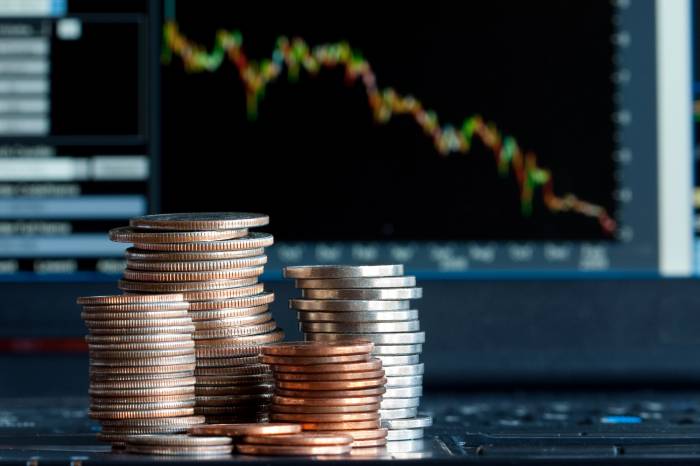Alcohol Giants Lose $830 Billion as Global Consumption Hits Historic Lows
2025-11-03
Changing lifestyles, health concerns, and economic pressures drive steep declines in alcohol sales and company valuations worldwide

A major shift in global drinking habits has led to a sharp decline in the value of the world’s leading alcohol companies. Over the past four years, these companies have lost a combined $830 billion in market value, according to a Bloomberg index that tracks about 50 publicly listed beer, wine, and spirits producers. The index now stands 46% below its peak in June 2021.
The downturn is being driven by several factors. Consumers are drinking less alcohol, with health concerns and changing lifestyles playing a significant role. A Gallup survey from August reported that alcohol consumption in the United States has dropped to its lowest level since records began in 1939. Warnings from health organizations such as the World Health Organization and the US Surgeon General have contributed to this trend, especially among Generation X. Millennials and Generation Z are also turning away from alcohol, influenced by teetotal celebrities and the growing popularity of non-alcoholic alternatives. The use of weight-loss drugs like Ozempic and increased interest in cannabis products have added further pressure on traditional alcohol sales.
Economic factors have compounded these challenges. High interest rates are affecting consumer spending, while elevated commodity prices are squeezing profit margins. In China, demand has been hit by weak household confidence and a ban on alcohol at official functions. US tariffs have also played a role in reducing earnings for some producers.
Major European drinks companies such as Diageo, Pernod Ricard, and Rémy Cointreau have seen their shares fall to their lowest levels in at least ten years. Brown-Forman, which owns Jack Daniel’s, and Australia’s Treasury Wine Estates have also experienced significant declines. In China, Kweichow Moutai, a leading baijiu producer, is trading more than 40% below its 2021 high.
Industry analysts say the sector faces ongoing risks. Sarah Simon of Morgan Stanley told Bloomberg that there is a structural change underway as people drink less alcohol. She noted that companies are dealing with falling revenues, high debt levels, and frequent changes in management.
In response to these challenges, many producers are launching new products and making changes at the executive level. Carlsberg introduced a non-alcoholic cider earlier this year, while Campari launched its alcohol-free Crodino brand in the United States in May. Diageo acquired Ritual Zero Proof, a Chicago-based non-alcoholic spirits company, last year. Moët Hennessy has invested in French Bloom, a premium sparkling non-alcoholic brand. Several major companies—including Diageo, Rémy Cointreau, Campari, Treasury Wine Estates, Molson Coors, and Suntory—have appointed new chief executives this year. Kweichow Moutai has seen two chairmen leave within two years.
Despite the sector’s struggles, some investors see opportunities as valuations fall. The Bloomberg index shows that global alcohol stocks are now trading at about 15 times forward earnings—less than half their valuation in 2021. US hedge fund Cook & Bynum has increased its investments in Brazilian brewer Ambev and Peruvian brewer Backus y Johnston. Richard Cook of Cook & Bynum said he expects brewers in emerging markets to eventually sell more premium products with higher profit margins.
Not all investors have fared well during this period. Warren Buffett’s Berkshire Hathaway has seen its investment in Constellation Brands—the owner of Corona—drop about 40% since it began buying shares last year. Artisan Partners of Milwaukee increased its holding in Diageo to over 50 million shares from fewer than nine million a year ago; however, Diageo’s stock is down around 30% this year.
Andrew Gowen of Bell Asset Management told Bloomberg that comparing the alcohol industry to tobacco would have been unthinkable five years ago. He said declining sales volumes are forcing producers to cut costs and focus on lower-priced options for consumers.
The global alcohol industry has existed for thousands of years but now faces one of its most challenging periods as consumer preferences continue to evolve and economic pressures persist worldwide.
Founded in 2007, Vinetur® is a registered trademark of VGSC S.L. with a long history in the wine industry.
VGSC, S.L. with VAT number B70255591 is a spanish company legally registered in the Commercial Register of the city of Santiago de Compostela, with registration number: Bulletin 181, Reference 356049 in Volume 13, Page 107, Section 6, Sheet 45028, Entry 2.
Email: contact@vinetur.com
Headquarters and offices located in Vilagarcia de Arousa, Spain.